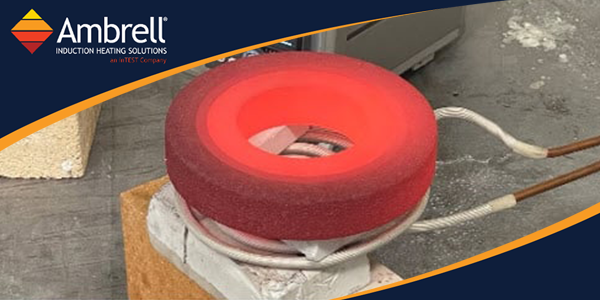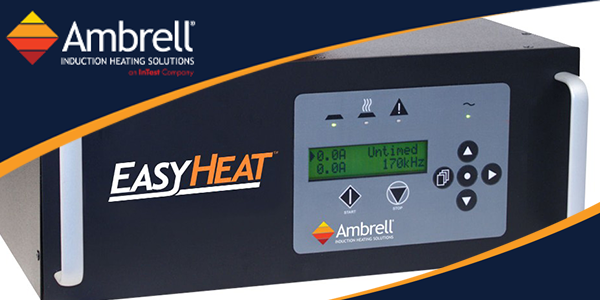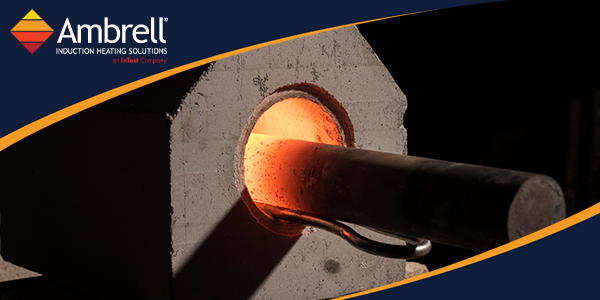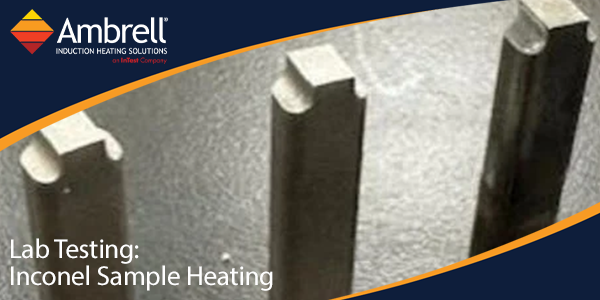Removing Rubber Bonded to Steel Using Induction Heating
Objective Removing rubber that has been permanently bonded to steel or other ferrous substrates can be a challenging and time consuming process....
Processes
Processes: More
Processes: More

Industries:
Industries: More
Industries: More
Industries: More

Products:
Products: More
Services:
Services: More

Learn:
Learn: More
About:


A company needed to heat a steel mold for a resin bond. They contacted THE LAB at Ambrell to see if induction could achieve the objectives of their application. The end product was the steel mold and they sent samples to THE LAB for feasibility testing.
More Heating Application Notes
A specially designed helical coil was used to provide heat for testing. Initial tests were conducted to optimize the power delivered to the part and to understand the heating patterns achieved. The target temperature was 800° F (427° C) for the part and 1,700° F (927° C) for the disk, and the frequency was 59 kHz. An Ambrell EKOHEAT 45 kW/50-150 kHz induction heating system was used for the application.
THE LAB at Ambrell confirmed the viability of the application. The target temperature was achieved within the targeted time. The client will realize several benefits using induction heating including speed, repeatability, enhanced safety (no open flame) and energy efficiency.
THE LAB at Ambrell has considerable experience with applications involving steel molds, which enabled them to deliver a solution that met the client's requirements. To learn more about free application testing, visit our page about THE LAB to get the process started.

Objective Removing rubber that has been permanently bonded to steel or other ferrous substrates can be a challenging and time consuming process....

In defense manufacturing, there is little margin for error. Components must meet exacting specifications, perform reliably in extreme environments,...

Overview When working with high-performance alloys like Inconel, achieving precise, repeatable heating is critical—especially in research and...